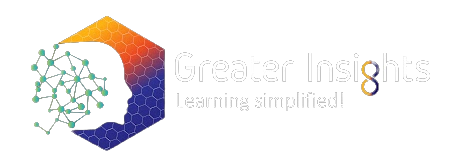Anypoint Platform Development
CloudLabs
Projects
Assignment
24x7 Support
Lifetime Access
.
Course Overview
This Mule 4 training course is for developers and architects who want to get hands-on experience using Anypoint Platform to build APIs and integrations. In the first part, students use Anypoint Platform to discover, consume, design, build, deploy, manage, and govern APIs. In the second and third parts, students focus on using Mule 4 and Anypoint Studio to build applications for use as API implementations and integrations
At the end of the training, participants will be able to:
Pre-requisite
- Experience with Java (preferred) or another object-oriented language
- A basic understanding of data formats such as XML, CSV, and JSON
- A basic understanding of typical integration technologies such as HTTP, JMS, JDBC, REST, and SOAP
Duarion
5 days
Course Outline
Accordion Content
- Understanding Mule applications, flows, messages, and message processors
- Creating flows graphically using connectors, transformers, components, scopes, and flow control elements
- Building, running, testing, and debugging Mule applications
- Reading and writing message properties
- Writing expressions with Mule Expression Language (MEL)
- Creating variables
- Understanding RESTful and SOAP web services
- Learning about what RAML is and how it can be used
- Consuming RESTful web services with and without RAML definitions
- Consuming SOAP web services
- Connecting to files, databases, and JMS queues
- Connecting to SaaS applications
- Discovering and installing connectors not bundled with Anypoint Studio
- Getting familiar with the different types of transformers
- Transforming objects to and/from XML and JSON
- Using Jackson annotations for more complicate JSON to object mappings
- Using JAXB annotations for more complicated XML to object mappings
- Streamlining complex data transformations with DataSense and the DataMapper
- Creating custom transformers with Java
- Separating applications into multiple configuration files
- Encapsulating global elements in a separate configuration file
- Creating and running multiple applications
- Creating and referencing flows and subflows
- Understanding variable persistence through subflows and flows and across transport barriers
- Understanding and creating synchronous and asynchronous flows
- Multicasting a message
- Routing message based on conditions
- Filtering messages
- Handling messaging exceptions in flows
- Creating and using global exception handlers
- Specifying a global default exception strategy
- Processing items in a collection individually
- Understanding what batch jobs are and when to use them
- Creating batch jobs to process items in a CSV file or a database
- Restricting record processing to new records
- Understanding the benefits of RESTful APIs and web services
- Using the API Designer to define APIs with RAML
- Implementing a RAML file as a RESTful web service with Anypoint Studio and APIkit
- Understanding the options for deploying applications
- Adding application properties
- Deploying and running applications on CloudHub
- Deploying and running applications on Mule ESB
Reviews
"The corporate training provided by Greater Insights was truly exceptional. The trainers were highly knowledgeable and engaging, making the sessions both informative and enjoyable. I gained valuable insights and practical skills that I immediately applied in my work. I highly recommend Greater Insights for their professionalism and expertise."
Rahul NiraniaSamsung 
"As a participant of the corporate training program organized by Greater Insights, I was thoroughly impressed with the level of customization they offered. They took the time to understand our specific needs and tailored the training accordingly. The trainers were fantastic, and the interactive sessions fostered an environment of active learning. I am grateful for the valuable knowledge and skills I acquired."
Bhawna TiwariSamsung
"I cannot express enough gratitude to Greater Insights for the outstanding corporate training they provided. The trainers were not only experts in their respective fields but also incredible communicators. They created a dynamic and collaborative learning environment, which allowed us to learn from one another. The training surpassed my expectations, and I would eagerly participate in any future programs they offer."
Ashutosh SinghSamsung 
"Attending the corporate training sessions organized by Greater Insights was a game-changer for me. The trainers were not only experienced professionals but also inspiring mentors. They equipped me with practical tools and strategies that have significantly enhanced my productivity and efficiency at work. I wholeheartedly recommend Greater Insights to anyone looking to excel in their professional endeavors."
Somashekar MuniyappaInfogain 
"The corporate training program offered by Greater Insights was an enlightening experience. The trainers had a deep understanding of the subject matter and were able to break down complex concepts into easily digestible information. The interactive activities and case studies made the training engaging and relevant to our day-to-day work challenges. This training has undoubtedly boosted my confidence and competence."
Amresh DiwanInfogain 
"I had the privilege of participating in a corporate training program organized by Greater Insights, and I must say it was a transformative experience. The trainers' expertise and passion for their subjects were evident in every session. The training materials provided were comprehensive and well-structured, enabling us to grasp the content effectively. I am grateful for the valuable skills I acquired, which have greatly contributed to my professional growth."
Namratha BabuTorry Harris 
"The corporate training sessions conducted by Greater Insights were simply outstanding. The trainers went above and beyond to ensure that we understood the concepts thoroughly. The interactive nature of the sessions encouraged active participation and enhanced our learning experience. I am truly grateful for the practical strategies and techniques I learned, which have had a positive impact on my work performance."
Rahul BhashyamTorry Harris 
"Participating in the corporate training program organized by Greater Insights was an enlightening experience. The trainers were not only knowledgeable but also skilled at delivering the content in an engaging manner. The training materials were well-designed, and the real-life examples provided valuable insights. I am confident that the knowledge and skills I gained will significantly contribute to my professional growth."
Deepti JainTorry Harris 
"I can confidently say that the corporate training provided by Greater Insights was top-notch. The trainers were highly experienced and had a knack for simplifying complex concepts. The training sessions were interactive and encouraged open discussions, which fostered a collaborative learning environment. The practical skills I acquired during the training have proven to be invaluable in my day-to-day work."
HARSHAL TRIVEDIL&T TS 
"Greater Insights exceeded my expectations with their corporate training program. The trainers were not only experts in their fields but also exceptional communicators. They effortlessly connected with the participants and ensured everyone's active involvement. The training content was comprehensive and provided a solid foundation for professional growth. I am grateful for the opportunity to learn from such seasoned professionals."
Namrata PillayL&T TS
"The corporate training facilitated by Greater Insights was exceptional in every aspect. The trainers were engaging and created a positive and inclusive learning environment. The training materials were well-structured and easy to follow, making the learning process enjoyable. The practical exercises and case studies allowed me to apply the knowledge immediately, resulting in improved job performance. I highly recommend Greater Insights for their commitment to excellence."
Sandhya M SanuHoneywell
"I recently attended a corporate training program organized by Greater Insights, and I am incredibly impressed. The trainers were not only knowledgeable but also highly skilled at delivering the content in a relatable manner. The training sessions were interactive and encouraged open dialogue, which made the learning experience engaging and dynamic. The practical skills I gained have already made a significant impact on my professional growth."
Neha SahayHoneywell
"I had the privilege of participating in a corporate training program conducted by Greater Insights, and it was truly transformative. The trainers were passionate and dedicated professionals who took the time to address our individual needs. The training sessions were interactive and encouraged active participation, allowing us to learn from one another's experiences. I am grateful for the knowledge and skills I acquired, which have undoubtedly propelled my career forward."
Abishek KalliparambilAllianz 
"The corporate training program offered by Greater Insights was a remarkable experience. The trainers had a wealth of knowledge and were adept at imparting it effectively. The training materials were comprehensive and provided valuable resources for further exploration. The interactive activities and practical exercises helped me internalize the concepts and apply them in real-world scenarios. This training has been instrumental in my professional development."
Kishor KumarITC Infotech 
"I cannot thank Greater Insights enough for the incredible corporate training they provided. The trainers were not only subject matter experts but also skilled at creating a positive and inclusive learning environment. The training sessions were well-structured, and the trainers ensured that we understood the content thoroughly. I am grateful for the valuable insights and skills I gained, which have already made a noticeable difference in my professional life."
Anitha PrashanthIndegene 
Previous
Next
